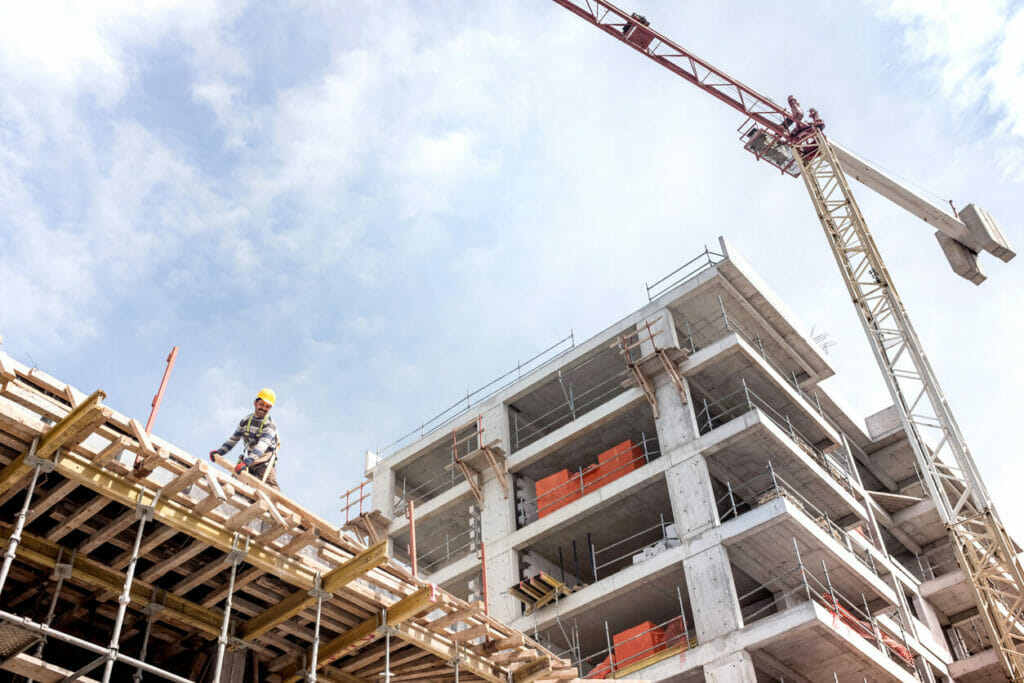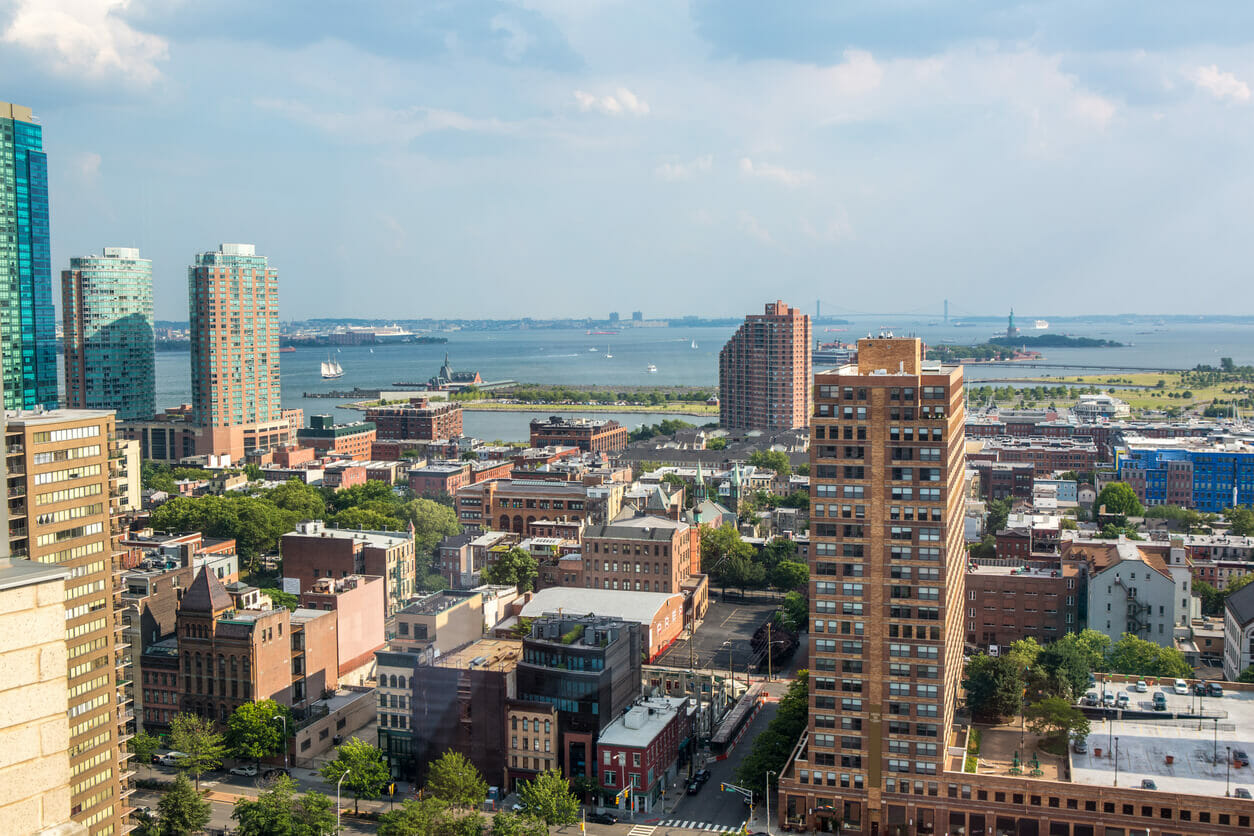New Jersey is a great place to buy or rent a condominium. In fact, a 2021 report has ranked Jersey City as one of the top mid-sized cities for buying real estate. It’s much more affordable than NYC, and residents don’t have to travel far to catch a Mets or Nets game.
New Jersey condominiums must follow The New Jersey Condominium Act, as well as state laws, master deeds and rules. In return, owners and residents can reasonably expect a safe and well-maintained living environment.
However, old or vague rules and policies don’t always provide the protection or clarity that condo members need. As such, new items need to be introduced from time to time to fill in any gaps that exist. This article will look at two important changes that may impact New Jersey condo associations.
1. A push to include faulty workmanship coverage in commercial liability insurance policies
This change has not yet been formalized, but a proposal has been made to pass a bill that would require all commercial liability insurance policies issued in New Jersey to include “faulty workmanship” within the definition of “occurrence.” That essentially means insurance companies would have to pay for damages that occur due to poor construction of the condominium.
Bill A.B. 1075, introduced by Assemblyman Gary S. Schaer, aims to protect condominium associations from having to pay for significant damage that occurred, unintentionally, as a result of subpar workmanship. The proposed bill was introduced in the first month of 2022, and must move through the committee review process.
The proposed bill “provides that a commercial liability insurance policy shall not be delivered, issued, executed or renewed in this State, on or after the bill’s effective date, unless the policy contains a definition of occurrence that includes:
- An accident, including continuous or repeated exposure to substantially the same general harmful conditions; and
- Property damage or bodily injury resulting from faulty workmanship.”

This bill is the next logical step following a serious case that was settled in 2016. A condo association named Cypress Point was experiencing rainwater damage as a result of a subcontractor’s inadequate work that was performed as the condo was being built. The subcontractor was hired by Adria Towers, the developer and general contractor for the project.
Cypress Point took Adria Towers, its insurers, and various subcontractors hired by the developer, to court. The association stated that the faulty workmanship during construction resulted in consequential damages to common elements and unit owner property. Once moved in, unit owners began experiencing roof leaks and water infiltration in the new units and the common areas.
The main issue was whether the water damage caused by a subcontractor constituted “property damage” caused by an “occurrence.” If this were the case, coverage under the condominium developer’s commercial general liability insurance policy would apply. The language contained in the 1986 ISP standard form commercial general liability policy issued to the developer defined an “occurrence” as “an accident, including continuous or repeated exposure to substantially the same general harmful conditions.”
In reviewing the association’s claims in conjunction with the policy definition of “occurrence,” the Court determined that the consequential damages caused by the faulty workmanship did indeed constitute “property damage.” The water that was infiltrating the interior of the condominium due to the faulty subcontractor work was an “occurrence” that would trigger coverage under the commercial general liability policies at issue.
In arriving at its decision, the Court found that the term “accident” contained in the policy was not defined. Upon review of the policy and relevant case law, the Court concluded that “the term ‘accident’ in the policies at issue encompass[ed] unintended and unexpected harm caused by negligent conduct.”
Having defined the meaning of “accident,” the Court then assessed whether the water damage caused by the contractor’s work was foreseeable. Since no one claimed that the insufficient work was done intentionally, it came to the conclusion that the negligent work was an accident. The accident was therefore covered by the insurance policy of the developer.
The Court’s decision for Cypress Point resolved decades of conflict and contradictory rulings from New Jersey’s lower courts. This new bill would codify the Court’s finding as part of the statutory requirements insurers must meet in order to issue policies in New Jersey.
A similar bill, NJ A3401, was proposed in 2020, but failed to make it through for passage.
2. Older condo buildings must have regular inspections to ensure structural soundness
Legislation was introduced at the end of 2021 to help ensure older buildings in New Jersey are inspected regularly and remain structurally sound.
Bill S-4103 requires the Commissioner of the Department of Community Affairs to establish a building safety inspection program for condos and structures that are more than 40 years old. Follow-up inspections will be required every five years.
This bill is inspired by the unforgettable collapse of a 40-year-old condominium building in South Florida in June of 2021. It was revealed that engineers and contractors had identified serious structural deterioration in the Miami condo prior to the collapse, but the issues were not addressed. As a result, multiple people died.
Senator Sam Thompson, the person who introduced the bill, recognized that New Jersey has a lot of older developments that are exposed to harsh winter weather conditions. He wanted to be proactive and take the proper steps to ensure condo residents never have to experience what people in Miami went through.
“We won’t find critical problems that need to be fixed unless we actually look,” said Thompson. “Families that live in these buildings deserve our vigilance before a tragic collapse happens here in New Jersey.”
Building owners would have 150 days to complete any necessary repairs or modifications that are needed after an inspection has been conducted under the program.
The legislation exempts single-family homes and federal government buildings. It also allows the commissioner to exempt certain classes of buildings and structures from the program.
While Thompson does not want to burden building owners unnecessarily, he believes this initiative is needed in order to keep people safe.
Conclusion
Changes can be difficult to adjust to, but change also promotes growth and improvement. The two items listed above are designed to protect New Jersey condo associations and the people who live in condos. Hopefully, these bills will encourage everyone to be more transparent and vigilant when it comes to building and maintaining condo communities.


